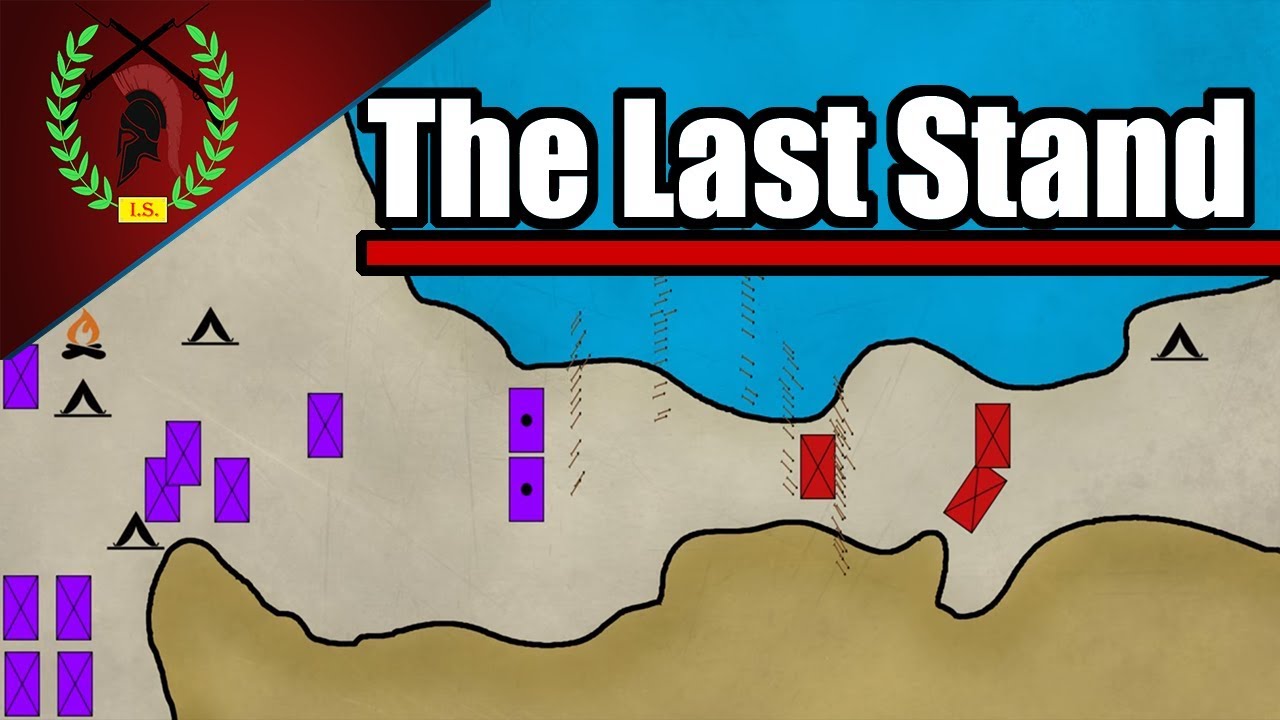Famous Battles of Ancient Greece Full Cinematic Documentary
Summary
TLDRThe script recounts pivotal battles of the Greco-Persian Wars, including the Athenians' underdog victory at Marathon and the heroic last stand at Thermopylae. It also covers the Peloponnesian War's key events, such as the Athenians' strategic win at Pylos and the decisive Battle of Amphipolis, which led to a temporary peace between Athens and Sparta.
Takeaways
- 🏺 In 490 BCE, the Battle of Marathon took place where 11,000 Greek hoplites led by Athenian general Miltiades defeated a much larger Persian force, marking a pivotal victory in the Greco-Persian Wars.
- 🌊 The Persians sought to invade Greece due to its rich resources, particularly silver mines, and had a significant foothold in Asia Minor after defeating Lydia in 545 BCE.
- 🔥 The city of Melidis' revolt against Persian rule in 494 BCE, supported by Athens and Eretria, led to Persian King Darius sending his forces to demand submission from Greek cities.
- ⚔️ Athens and Sparta's defiance of Persian demands by killing the messengers in 491 BCE provoked Darius to invade, leading to the Battle of Marathon.
- 🗓️ The Persians' initial victories at Naxos and Eretria boosted their confidence, setting the stage for the invasion of Athens.
- 🏹 The Athenians, caught off guard by the Persian attacks, sought help from other Greek city-states, with Sparta agreeing to aid but unable to send reinforcements in time due to religious observances.
- 🏰 The advice of the exiled Athenian tyrant Hippias led the Persians to land at Marathon, where they could effectively use their cavalry.
- 🏃♂️ The legend of a Greek soldier running from Marathon to Athens to announce the victory gave rise to the modern marathon race.
- 🏹 The Greeks' strategic positioning and Miltiades' decision to strike first led to a surprising victory against the Persians at Marathon, with heavy Persian losses.
- 🏛️ The victory at Marathon was considered miraculous by the Greeks, who believed legendary heroes like Theseus and Heracles fought alongside them, elevating the battle's status in Greek history.
- 🌊 After the Battle of Marathon, Persian King Darius planned a larger invasion, which eventually led to the Battle of Thermopylae where Leonidas and his 300 Spartans made a heroic last stand.
Q & A
What was the outcome of the Battle of Marathon?
-The Athenians, led by General Miltiades, won the Battle of Marathon against the Persian forces despite being outnumbered. This victory was a major turning point in the Greco-Persian Wars.
Why did the Persians want to invade Greece?
-The Persians wanted to invade Greece in part due to its rich silver mines and to consolidate their power over the region.
What event led to the Persian King Darius sending messengers to Greek cities demanding submission?
-The revolt of the city of Miletus against Persian rule, aided by Athens and Eretria, and the burning down of an important Persian temple led to King Darius demanding submission from Greek cities.
Why were the Spartans unable to send reinforcements to help Athens during the Battle of Marathon?
-The Spartans were unable to send reinforcements in time due to the religious feast of Apollo Carneos, which forbade them from leaving their city until the next full moon.
How did the Greeks manage to win the Battle of Marathon despite being outnumbered?
-The Greeks managed to win by employing a creative defensive strategy and launching a surprise first strike against the Persians, who were unprepared for such an aggressive move.
What was the significance of the Battle of Marathon in the development of democracy in Athens?
-The victory at Marathon marked the beginning of a new era for Athens and was perceived as a blow against tyranny, which helped consolidate the institution of democracy for the next two centuries.
What was the role of the legendary heroes in the Battle of Marathon according to Greek accounts?
-According to Greek accounts, the appearance of legendary heroes like Theseus and Heracles, who were believed to have returned from the dead to fight alongside the Greeks, contributed to the miraculous victory at Marathon.
How did the Battle of Thermopylae impact the morale of the Persian army?
-Despite their victory at Thermopylae, the Persian army's morale was shaken as they had lost thousands of men while Greek casualties were significantly lower. This made the Persians more anxious and aware that the Greeks were not afraid to die defending their land.
What was the strategic importance of the location chosen for the Battle of Thermopylae?
-The location of Thermopylae featured a narrow pass that could act as a bottleneck for the Persian army, negating their numerical superiority and offering naval advantages for the Greek fleets.
How did the Spartans' last stand at Thermopylae affect the course of the Persian invasion?
-The Spartans' last stand at Thermopylae bought time for the rest of the Greek army to successfully retreat and regroup, which ultimately led to their decisive victory over the Persians in the Battle of Plataea.
What was the impact of the Athenian victory at the Battle of Marathon on their prestige in Greece?
-The Athenian victory at Marathon greatly enhanced their prestige, ranking them first in the ongoing competition between the Greek city-states and immortalizing their success by erecting monuments in their own city and in Delphi.
Outlines

このセクションは有料ユーザー限定です。 アクセスするには、アップグレードをお願いします。
今すぐアップグレードMindmap

このセクションは有料ユーザー限定です。 アクセスするには、アップグレードをお願いします。
今すぐアップグレードKeywords

このセクションは有料ユーザー限定です。 アクセスするには、アップグレードをお願いします。
今すぐアップグレードHighlights

このセクションは有料ユーザー限定です。 アクセスするには、アップグレードをお願いします。
今すぐアップグレードTranscripts

このセクションは有料ユーザー限定です。 アクセスするには、アップグレードをお願いします。
今すぐアップグレード関連動画をさらに表示

Le guerre persiane: Maratona, Termopoli e Salamina

Why is Herodotus called “The Father of History”? - Mark Robinson

RAZBOAIELE MEDICE

I Persiani in 5 minuti Flipped Classroom

Die Schlacht von Marathon: Der Tag, an dem Athen das Persische Reich besiegte.

The Battle of Thermopylae : Last Stand of The Greeks - Military History Animated.
5.0 / 5 (0 votes)
